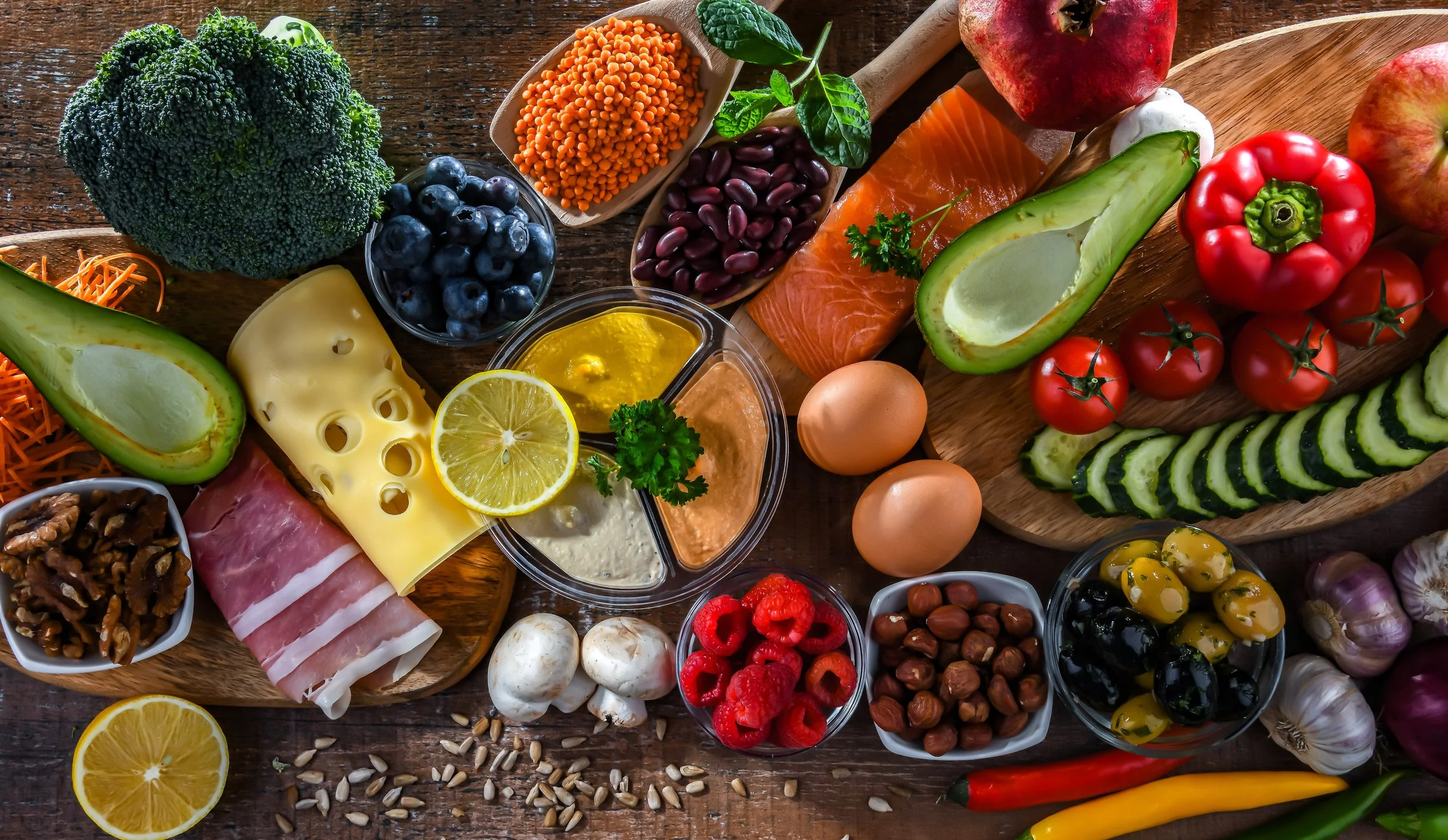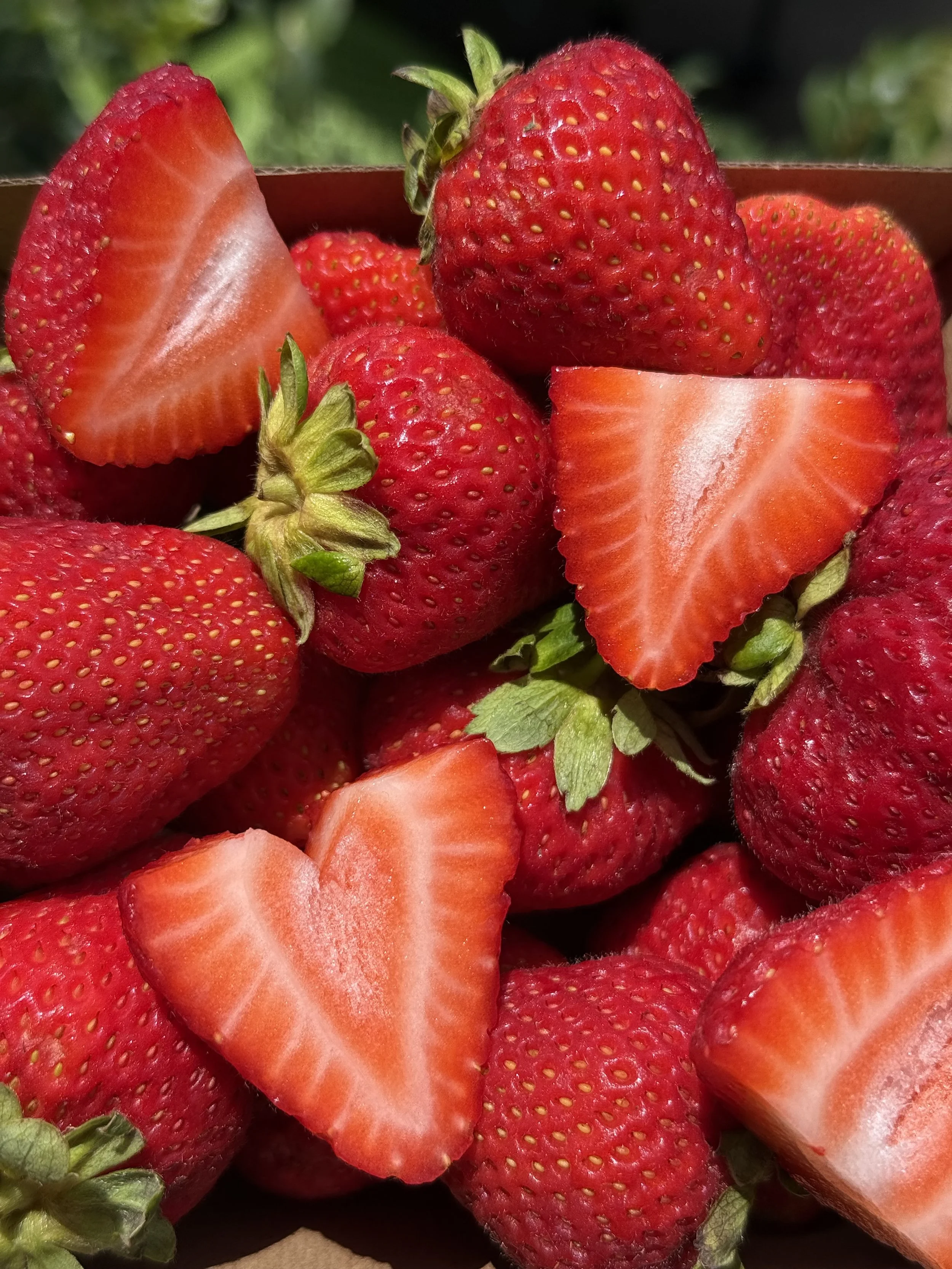THE GUT-BRAIN AXIS
11.09.2025
ARTICLE BY CLINICAL NUTRITIONIST (BSHc) RACHAEL BRIDGES
AND THE FOODS GROWN IN SPRING THAT SUPPORT OUR MENTAL WELLBEING
It suggests that our emotional well-being is not only shaped by the brain but also deeply influenced by the trillions of microorganisms residing in our gut. As we welcome the Australian spring, this season offers a bounty of fresh, local produce that can nourish this vital connection and help support mental well-being.
WHAT IS THE GUT-BRAIN AXIS
The gut-brain axis refers to the complex communication network that links the central nervous system (brain and spinal cord) with the enteric nervous system (gut). This relationship involves hormonal signaling, immune responses, and, perhaps most importantly, the gut microbiota, the diverse community of bacteria and other microbes living in the digestive tract.
A healthy gut can produce neurotransmitters like serotonin and dopamine chemicals that play a crucial role in regulating mood, anxiety, and cognition. Did you know around 90% of the body's serotonin is produced in the gut. Disruptions to the gut microbiome, often caused by poor diet, stress, and medications like antibiotics, can contribute to mental health issues such as depression and anxiety.
FOODS THAT SUPPORT THE GUT-BRAIN BXIS
Nutrition plays a key role in supporting gut microbiome and, by extension, mental health. Diets rich in fibre, polyphenols, omega-3 fatty acids, fermented foods, good quality protein sources and prebiotics help maintain microbial diversity and promote the production of mood regulating compounds.
In spring, a wide array of fresh produce is available to support both gut and brain health. Including:
1. Asparagus
This spring vegetable is a rich source of prebiotics, which are types of dietary fibre that feed the beneficial bacteria in the gut. Asparagus contains inulin, a compound that helps stimulate the growth of Bifidobacteria and Lactobacillus, both associated with improved mood and reduced anxiety.
2. Brassica Vegetables
Broccoli, cauliflower, and Brussels sprouts are rich in fibre and sulforaphane, an antioxidant and anti-inflammatory compound. Sulforaphane has been shown in some studies to have antidepressant-like effects and supports detoxification processes in the liver and brain.
3. Strawberries
One of spring’s sweetest offerings, strawberries are rich in vitamin C and polyphenols, which reduce oxidative stress and support neurotransmitter function. Polyphenols also encourage the growth of beneficial gut bacteria. Add them to your breakfasts, smoothies, or desserts for a mental and microbial uplift.
4. Leafy Greens
Dark leafy greens like spinach, silverbeet, and kale thrive in spring. These vegetables are rich in folate, a B vitamin crucial for brain function and mental health. Folate deficiency has been linked to increased risk of depression. These greens are also packed with fibre and antioxidants that support the gut.
5. Avocados
Avocados are abundant in QLD and WA! They contain healthy monounsaturated fats, which help reduce inflammation, and are high in vitamin E and B vitamins. Their fibre content also supports microbial diversity in the gut.
6. Fermented Vegetables
Spring is a great time to make your own fermented vegetables using seasonal produce like carrots, cabbage, or radishes. Fermented foods like sauerkraut and kimchi are rich in probiotics, which directly add beneficial bacteria to the gut and help regulate mood and stress response.
THE MEDITERRANEAN DIET
The synergy of these spring foods fits well into a Mediterranean style diet, which has been linked to lower rates of depression and anxiety. This diet emphasizes vegetables, fruits, whole grains, seafood, nuts, legumes, and olive oil, many of which are available fresh and locally in Australia during spring.
TIPS FOR SUPPORTING GUT & MENTAL HEALTH
EAT A RAINBOW
A variety of colorful vegetables provides diverse nutrients and fibre for gut bacteria.Avoid ultra-processed foods as these often contain additives and sugars that harm gut flora.
PROTEIN
It’s vital to consume a wide range of good quality protein sources to ensure your diet contains all nine essential amino acids, these are the ones your body cannot make.
FERMENTED FOODS
Add yogurt, kefir, or homemade ferments to your daily diet.
STAY HYDRATED
Water helps keep digestion smooth and supports microbial balance.
SUPPORT YOUR MIND
Stress management through exercise, yoga, mindfulness, meditation and sleep helps maintain gut integrity.
FINAL THROUGHTS
The gut-brain axis is a powerful example of how deeply interconnected our bodies truly are. By choosing fresh, nutrient-rich foods that grow naturally in Australia’s spring climate, we can nourish our microbiome and promote mental resilience. So next time you're at Market Organics, think about what your gut and brain need to thrive together.
ARTICLE BY CLINICAL NUTRITIONIST (BSHc) RACHAEL BRIDGES | MARKET ORGANICS LOGANHOLME
As a dedicated nutritionist with a lifelong passion for health and wellbeing, I focus on supporting clients through every stage of life with a personalised, science-based approach. My key interests lie in longevity, autoimmune conditions, gut and brain health, mental health, and women’s health. I’m driven by a deep belief in the body’s ability to heal and thrive when given the right support, inside and out.



